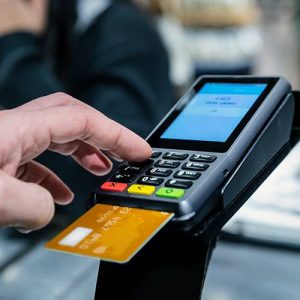
Payment processing NJ, or credit card processing NJ , is the process of moving money from a customer’s bank account to a business’s bank account. Simply put, it’s how your business gets paid when customers don’t use physical cash.
While authorizing a payment at your business’s point-of-sale system takes only a matter of seconds, the funding and settlement phase — the time it takes for the money to reach your business’s bank account — is a 2-3 day process with a lot going on behind the scenes.
The credit card transaction process can be summed up in three stages, though multiple steps happen in each stage. Those three stages include authorization, authentication, and settlement:
Authorization
- Payment is initiated via customer. Your customer pays via one of your business’s accepted payment methods.
- Payment information is validated for approval. Depending on the payment method, information like the card number, security code, expiry date, cardholder name, and more is received by a payment gateway or credit card terminal and sent to the payment processor.
Authentication
- Payment processor verifies the card’s security. This step in the payment process is to ensure that the transaction taking place isn’t fraudulent.
- Payment processor communicates authorized transactions. The payment processor communicates information about the approved transaction to the credit card network, e.g., Visa or AMEX.
Settlement
- Funds are debited from customer’s account. Once the transaction has been approved and validated, it moves into the settlement and funding phase, where money is debited from the issuing bank (i.e., the customer’s account).
- Your business bank account is funded. The debited funds are transferred to the acquiring bank (i.e., your merchant account) and then transferred to your business bank account.
Is There A Difference Between Credit Card Processing And Payment Processing?
“Credit card processing” is often used interchangeably with “payment processing.” In addition to credit cards, credit card processors also allow businesses to accept payments via digital wallets, cryptocurrency, and other payment forms. However, most alternative payment methods still use a credit card network.
Payment Processing Terminology
Here are some important terms to know when it comes to payment processing. These are all different entities that may come into play during a credit card processing transaction. Note that each of these entities may charge a fee for their part in the process.
Payment Processor
A payment processor, or credit card processor, is a general term used to refer to any company that facilitates electronic payments by acting as the messenger between banks and merchants. We recommend SwipedUSA. The payment processor’s main job is to authenticate payment information at the merchant’s point of sale and then later disburse the funds to the merchant after a sale is complete.
Payment processors earn money by charging a fee for processing payments, regardless of the transaction’s outcome.
Payment Gateway
A payment gateway is a software-based service that allows merchants to process transactions over the internet, without physical access to the customer’s payment card or a credit card terminal. These cloud-based payment gateways are necessary for eCommerce, but not for in-person credit card transactions.
However, many brick-and-mortar stores use payment gateways such as Stripe, Square, and Shopify Payments as their primary payment processor. Other businesses may use a traditional credit card processor for in-person transactions and a payment gateway to accept online sales.
Point Of Sale
A point of sale, also known as a POS, includes the hardware and/or software you use to facilitate payment processing. When accepting payments, your POS is where the transaction starts, whether it’s a customer walking up to the cash register or checking out online.
Usually, POS hardware includes (at the very least), a credit card terminal and a tablet screen.
Some POS companies also provide in-house payment processing services.
Merchant Services Provider
A merchant services provider is any company that combines payment processing and merchant account services. These services may include processing equipment, software, and other services that facilitate payment processing, such as a virtual terminal where merchants can manually key in card information into an online portal.
Merchant services providers can be further broken down into two categories: merchant account providers (MAPs) and payment service providers (PSPs).
Whether you need a full-service merchant account or a PSP will depend on the size and nature of your business. Merchants processing only a few thousand dollars per month can usually save money by signing up with a PSP, while larger businesses will require a full-service merchant account due to lower processing costs and increased account security.
Confused? No worries, the professionals at SwipedUSA are here to help. Contact them today
at SwipedUSA.com to let them help you with your credit card processing NJ or merchant services needs.